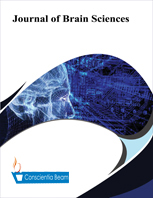Interventions for Reducing Coercion in Mental Health for Adults: A Systematic Review and the Impact of Updating
DOI:
https://doi.org/10.18488/journal.83/2015.1.1/83.1.1.23Abstract
Background: Reduction of use of coercive measures in Mental Health Care has been of increasing concern for patient organizations, governmental agents and health policy makers. Aim: To examine the effectiveness of psychosocial interventions intended to reduce coercion in mental health for adults. Methods: We conducted a systematic review in 2012 and update in 2013. Studies with control groups were included. Assessment of risk of bias and meta-analyses of randomized controlled studies was undertaken. The Grading of Recommendations Assessment, Development and Evaluation (GRADE) tool for evaluating the overall quality of evidence was used and expressed in four categories: high, moderate, low and very low. Results: Fifteen studies met the inclusion criteria. For the intervention Joint crisis plan, a reduction in the number of patients admitted involuntarily could not be verified by meta-analyses (RR 0.71 (95% CI 0.38–1.33), P=0.28). Quality of evidence was assessed as low by GRADE and the results should be interpreted with caution. Risk assessment of aggressive behaviour in acute psychiatric wards and counselling towards staff in high security wards seemed to reduce seclusion and restraint, but for these interventions meta-analyses was not feasible. Conclusion: Joint crisis plans for reducing coercion is unclear. Risk assessment and counselling towards staff may reduce coercion.
Declaration of interest None

